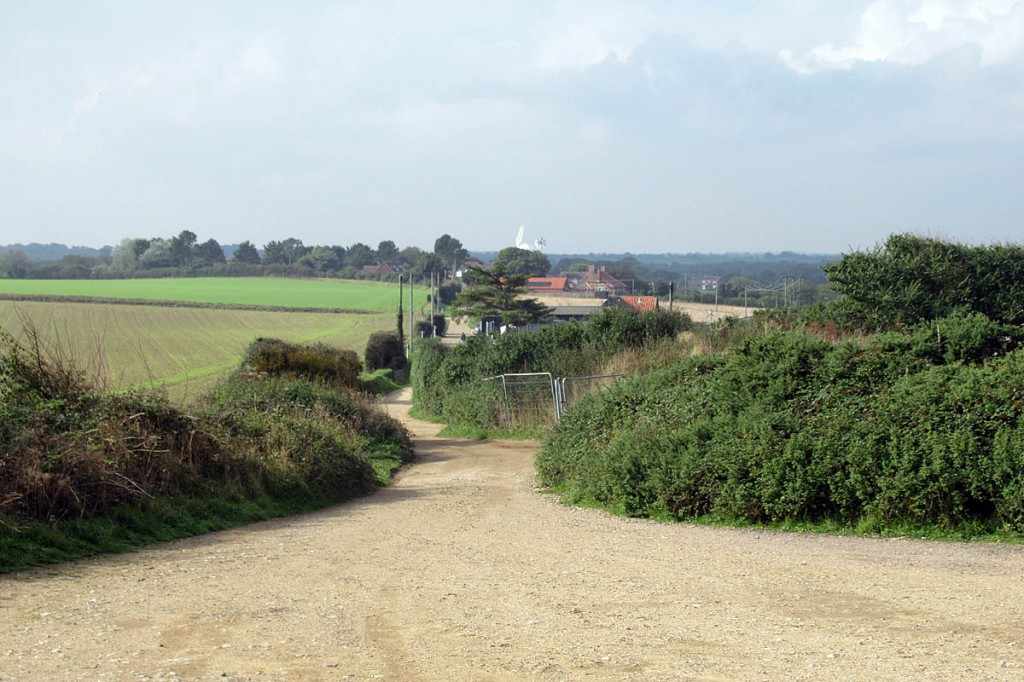Campaigning charity the Ramblers has welcomed news the government has scrapped plans for a cut-off date for recording ‘lost’ historic paths in England.
Under the plans, walkers would have lost the legal right to use any footpaths and bridleways not registered by 2026.
The Ramblers said the deadline of January 2026 meant that any paths not applied for by that date would no longer be able to be added to maps based on historical evidence.
Through their Don’t Lose Your Way campaign, the Ramblers discovered over 41,000 miles of potential missing rights of way to be investigated and applied for in England. “It was a race against time to save a huge part of our vital path network,” the charity said.
Jack Cornish, head of paths for the Ramblers, said: “After years of campaigning by the Ramblers, the announcement by the government that they will abolish the 2026 deadline for registering historic paths is a cause for celebration.
“This welcome decision means that, with the help of our brilliant volunteers, we’ll be able to make sure the most important and useful paths are added back to the map and protected for future generations. And we no longer have the pressure of an arbitrary deadline in either England or Wales that put so many of our rights of way at risk.”
“As well as being an important part of our history, our path network makes a huge difference to our health and wellbeing. We’re more aware than ever of how good it is for us to be able to easily get outdoors into green spaces, and this is a step in the right direction for the government towards making it a reality for more people to enjoy the benefits of walking and connecting with nature.”
The decision by the Westminster government brings England into line with Wales, which dropped the deadline in 2018.
The cut-off date was a provision in the right-to-roam legislation the Countryside and Rights of Way Act, passed by a Labour government 22 years ago, and which established open access land in England and Wales, allowing people to walk off-footpath in defined areas.
In 2020, thousands of members of the public joined the Ramblers’ Don’t Lose Your Way campaign to take part in an online hunt for lost paths, discovering more than 49,000 miles of potential unrecorded rights of way in England and Wales. Since then, the walkers’ charity has been working with a team of volunteers to prioritise the paths that would be the most useful additions to the definitive map and has been developing resources to support volunteers in researching the historic evidence and making applications to local authorities to add them to the map.
Once legally recorded as rights of way and added to the definitive map, paths are protected under the law for people to use and enjoy forever. The Ramblers said, if successfully claimed, the missing paths will have the potential to increase the path network in England and Wales by up to a third, enabling the creation of new and better walking routes, so more people can easily enjoy nature on foot.
The National Parks and Access to the Countryside Act 1949 required all local authorities in England and Wales to keep an official record of public rights of way – the definitive map. The process of mapping these wasn’t straightforward with paths often missed off, usually by mistake.
The Ramblers said that the decision to scrap the 2026 deadline in England will help ease the pressure on under-resourced local authorities, who need to process all the claims for missing rights of way. But they are also calling for better resources for local authorities to enable applications to be processed efficiently, as many struggle to get through years’ worth of application backlogs.
Mr Cornish said: “We can’t relax yet. It’s still important that we get these paths applied for and added to the map, so we can all have access to great places to go walking and connect with nature. We look forward to continuing to work with our amazing volunteers and with local authorities to protect our wonderful network of recorded and unrecorded paths for generations to come.”
The charity is appealing for more volunteers to help with researching and registering lost paths. More details are on the Ramblers’ website.

A newly recorded track between North Walsham and Mundesley in Norfolk. The successful application for a restricted byway was made by the OSS's local correspondent Ian Witham
The Open Spaces Society, Britain’s oldest national conservation body, said the Department for Environment, Food and Rural Affairs told the stakeholder working group, including representatives of users, landowners and farmers, and local authorities, that it would ditch the deadline, since considerable work remained to get the proposals ready for legislation.
Kate Ashbrook, general secretary of the Open Spaces Society and a member of the SWG since its inception, said: “We are greatly relieved that Defra has recognised that the 2026 guillotine is impractical.
“Much legal and technical work remained to be done before it could be imposed, and this has stalled for some time. We are pleased that Defra has taken this sensible and pragmatic decision.
“Now, users can carry out their work without a Sword of Damocles hanging over them, and we can ensure that valuable ways are saved. However, it is also important to record them in order that people know where they are and they can be protected from development.
“Therein lies a serious problem because local authorities have a long backlog of applications.
“The rights-of-way reform package, agreed by the SWG and included in the Deregulation Act 2015, was intended to expedite path claims and assist local authorities in processing them. We hope that these can be extracted and implemented in any case, to help the applications from building up.
“We are concerned, however, that Defra proposes instead to focus on implementing measures to give landowners a right to apply for path changes, which could divert hard-pressed local authorities into prioritising proposals which are not in the public interest. We shall be advising and lobbying on these provisions.”
